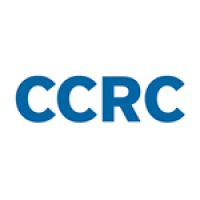By Sarah Griffin and Umika Kumar
Last summer, faculty, staff, and administrators from 25 rural community colleges participated in CCRC’s first guided pathways virtual institute. Over two weeks, college teams attended presentations and engaged in working sessions on using data to motivate guided pathways reforms. A central focus was on redesigning the program onboarding experience for students, which CCRC research indicates is essential if colleges want to achieve more equitable student outcomes and build back enrollments colleges have lost before and during COVID through improved recruitment and retention.
CCRC is excited to announce a second virtual institute in summer 2022 that will help participants build the skills and knowledge needed to lead college-wide student success efforts at their institutions using the guided pathways framework.
What can colleges interested in the summer 2022 institute expect? To help answer this question, we asked institute participants from three colleges—Greenfield Community College in Massachusetts, Northeast Community College in Nebraska, and Northland Pioneer College in Arizona—to describe their experiences at the 2021 institute.
All community colleges in the early stages of planning and implementing guided pathways reforms are eligible to apply to the 2022 institute and can watch a recording of our informational webinar.
The institute supported colleges’ efforts to advance their guided pathways work.
Participants said the institute helped propel their work forward in important ways. Chet Jordan, dean of social sciences and professional studies at Greenfield Community College (GCC), said the institute helped his team clarify their college’s pathways framework.
“What we learned most, above all else, was how to freely apply the guided pathways framework to our local context,” Jordan said. “Configuring the elements of guided pathways within the already established context of our institution was an incredibly powerful revelation and helped us talk to our colleagues about strategy and approach without it feeling like ‘just another initiative’ from somewhere far away.”
For Jennifer Greve, executive director of marketing and recruitment at Northeast Community College (NCC), the institute’s emphasis on using data helped her college improve their understanding of guided pathways.
“The institute helped Northeast organize many of the [pathways] concepts and use data to support those concepts,” she said. “The data helped us see which students are not on a structured plan and the rate of their success.”
Equally important, the institute helped the college teams define goals for their institutions and develop tools to work toward those goals, said Melody Niesen, a member of the English faculty and Student Success Alliance co-chair at Northland Pioneer College (NPC).
“By focusing on goals (long- and short-term) and concrete shareables, we were able to highlight what we learned in succinct ways to share with the college community and drive our work forward,” she said. “I was able to get insight that showed me the importance of taking action now to help change college practices and culture to more equitably serve all of our students.”
Participants agreed that the institute’s structure and activities were thoughtfully designed to support the institute’s goals.
The institute’s two-week timeframe was ideal for supporting the institute’s activities, participants said. They also appreciated that the institute included synchronous and asynchronous time with their teams to encourage team-wide brainstorming while also accommodating the schedules of different team members.
“The [synchronous] team time allowed our college’s group to come together, strategize, and plan for both the CCRC institute and our colleges’ specific, long-term goals,” said Niesen of NPC. “The asynchronous activity time gave space for our college’s team to collaborate via email and using Google Docs, which was a necessary balance for summer work when some staff are off contract or out of the office.”
The teams also spent time exploring student-level data from their colleges and creating TED-style presentations that described their vision for redesigning program onboarding at their institutions.
“The highlights of our team’s participation were the data dashboards and group questions CCRC had us talk through,” said Greve of NCC. “CCRC presented our student data in a way we had never seen before. This helped us better understand where we needed to put our resources and energy. The TED Talk was also a great exercise for so many reasons! We have used the presentation several times. In addition, we got wonderful ideas from other teams’ presentations.”
Participants established connections with other colleges and CCRC researchers, which have helped support their ongoing work.
The educators who attended the 2021 institute valued the opportunities they had to work with and learn from their colleagues and practitioners from other colleges.
“The opportunity to discuss and collaborate with partner colleges helped us connect, share best practices, and commiserate over pitfalls and frustrations,” Niesen said.
Participants also appreciated the support and coaching they received from the CCRC researchers who facilitated the institute.
“The most helpful component of the institute was working directly with CCRC staff,” Jordan said. “Their knowledge and depth of experience with the research, especially with regard to rural community colleges, is second to none.”
Building new relationships, said Ryan Jones, Humanities, English, Language, & Philosophy department chair and Student Success Alliance co-chair at Northland Pioneer College, has served NPC beyond the two-week institute.
“The ongoing support from CCRC and from other colleges we either met through the summer institute or were put in contact with during the institute has been extremely useful,” he said. “It’s nice to know we don’t have to reinvent the wheel, and that we can take what is helpful from multiple sources and customize it to fit our needs.”
Read more about the 2022 guided pathways summer institute and apply today. Colleges interested in applying to the institute can also watch a recording of our January 18 informational webinar. Please reach out to Hana Lahr, senior research associate and program lead, at lahr@tc.columbia.edu with questions about the institute.





